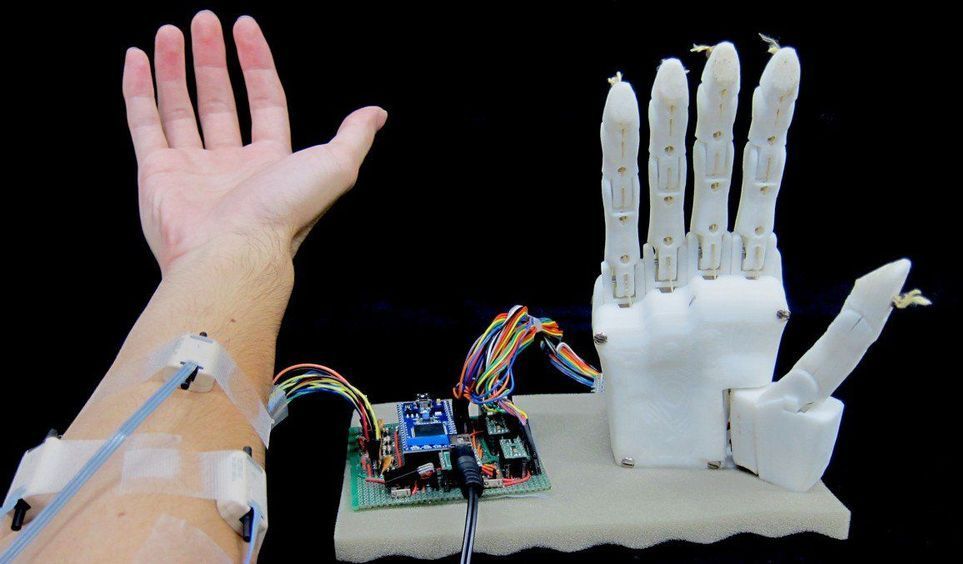A 3D-printed prosthetic hand controlled using a new AI-based approach could significantly lower the cost of bionic limbs for amputees.
Real need: There are approximately 540,000 upper-limb amputees in the United States, but sophisticated “myoelectric” prosthetics, controlled by muscle contractions, are still very expensive. Such devices cost between $25,000 and $75,000 (not including maintenance and repair), and they can be difficult to use because it is hard for software to distinguish between different muscle flexes.
Handy invention: Researchers in Japan came up with a cheaper, smarter myoelectric device. Their five-fingered, 3D-printed hand is controlled using a neural network trained to recognize combined signals—or, as they call them, “muscle synergies.” Details of the bionic hand are published today in the journal Science Robotics.
